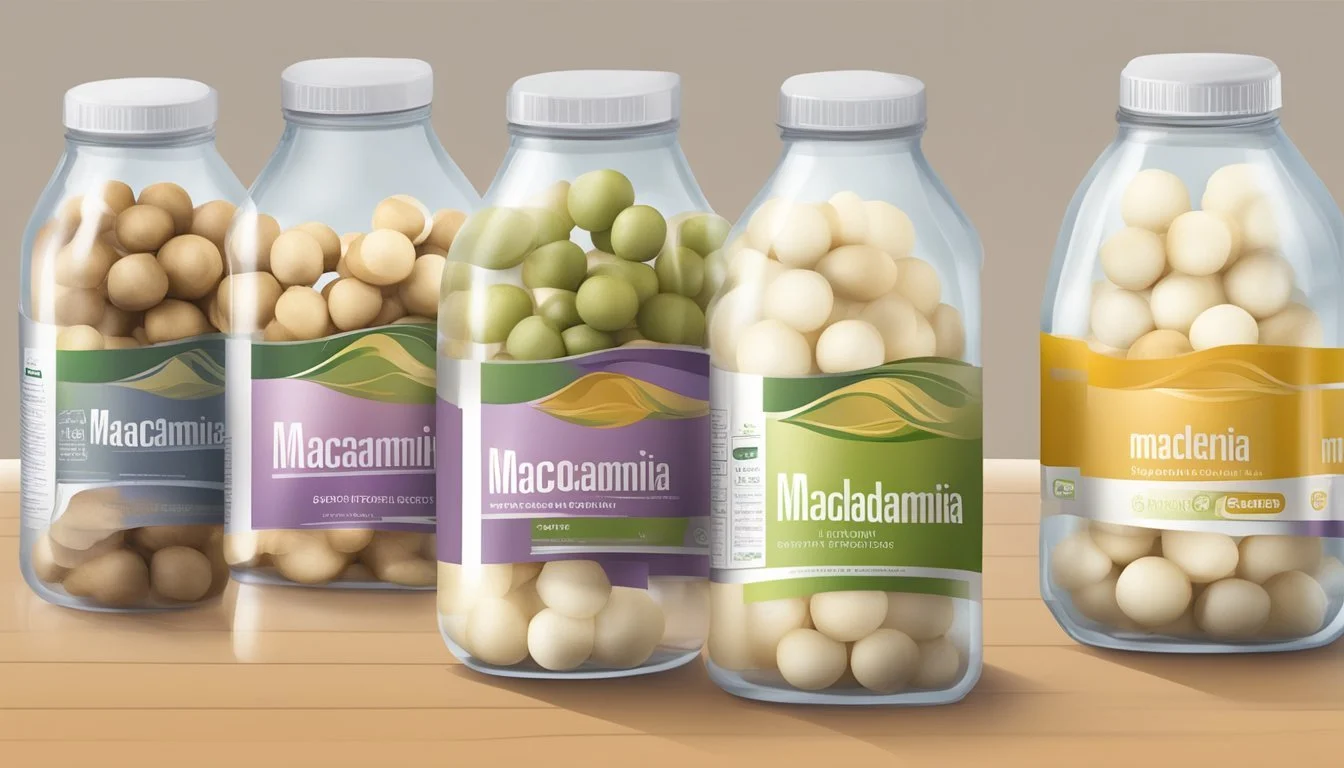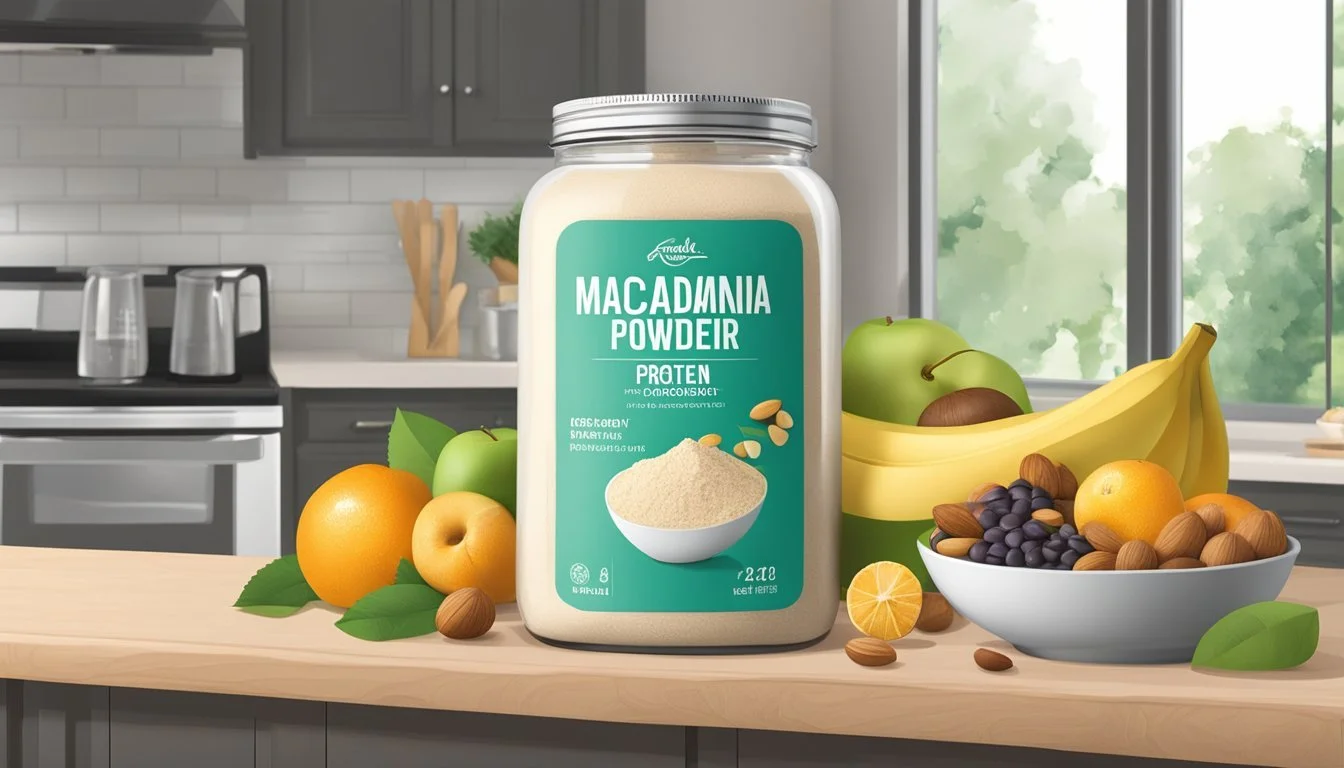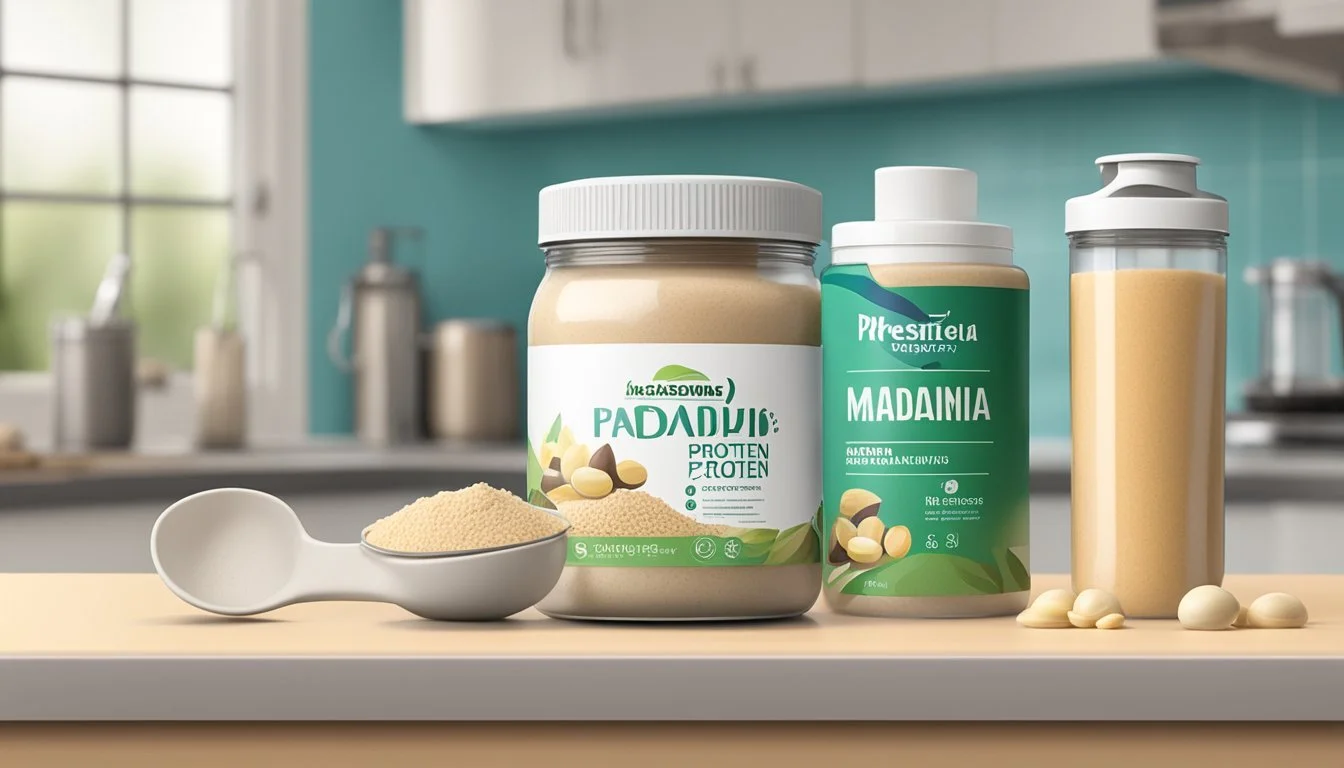Does Macadamia Protein Expire?
Shelf Life and Storage Tips
When it comes to the shelf life of macadamia protein, many people wonder if this plant-based product can expire. Like other protein powders, macadamia protein can indeed expire, especially if not stored properly. Generally, the shelf life of protein powders, including those made from macadamias, ranges from 9 to 24 months, depending on storage conditions and added preservatives.
Proper storage is key to maintaining the quality of macadamia protein powder. It should be kept in a cool, dry place away from direct sunlight to maximize its shelf life. Emulsifiers and other additives often found in protein powders can further extend their usability beyond the printed expiration date, making it possible for the product to be safe to consume for a couple of months after.
For those considering macadamia protein, it's essential to check the best-by date and observe any changes in smell, taste, or texture before use. While additives can help maintain freshness, trusting your senses remains crucial to determining if the product is still good to consume.
Understanding Protein Powders
Protein powders come in various types and sources, each serving different nutritional needs. They play a significant role in nutrition and overall health, with macadamia protein emerging as a notable plant-based option.
Types of Protein Powder
Protein powders are derived from both animal and plant sources. Whey protein and casein are popular animal-based options, known for their high-quality protein and essential amino acids.
Plant-based proteins include sources like pea, hemp, and soy. These are excellent for those on vegan or dairy-free diets. Each type brings unique benefits, such as different rates of digestion and variations in amino acid profiles.
Tables can help compare the key characteristics of each type:
Type Source Key Benefits Whey Protein Milk Fast digestion, rich in BCAAs Casein Milk Slow digestion, prolonged amino acid release Soy Protein Soybeans Complete protein, good for heart health Pea Protein Yellow peas Easily digestible, hypoallergenic Hemp Protein Hemp seeds High in fiber, contains omega-3 fatty acids
The Role of Proteins in Nutrition and Health
Proteins are vital for muscle repair, immune function, and overall cellular health. They provide essential amino acids that the body cannot produce on its own, making them indispensable in the diet.
Incorporating protein powders can help meet daily protein requirements, particularly for athletes, bodybuilders, or individuals with higher protein needs. These powders can be conveniently added to shakes, smoothies, and various recipes.
Excess protein intake should be monitored to prevent potential strain on the kidneys and other health issues. Proper balance and moderation are key for optimal health benefits.
Macadamia Protein: A Plant-Based Option
Macadamia protein, derived from macadamia nuts, is a plant-based protein gaining popularity. It offers a rich profile of essential amino acids and healthy fats, making it a nutritious choice.
This protein is suitable for vegans and those with dairy allergies. It also provides a creamy texture, making it a versatile addition to various recipes. Macadamia protein supports heart health due to its high monounsaturated fat content.
Although relatively new, macadamia protein is proving to be a valuable option in the realm of plant-based proteins, combining both nutritional benefits and great taste.
Shelf Life and Expiration
Shelf life and expiration dates are crucial for ensuring the safety and effectiveness of protein powders. This section discusses how to determine shelf life, the significance of expiration dates, factors affecting shelf life, and signs of spoilage.
Determining the Shelf Life of Protein Powders
Protein powders generally have a shelf life ranging from 9 to 24 months, depending on their ingredients and storage conditions. Manufacturers usually include a "best-by" or "expiration date" on the packaging, which serves as a guideline for freshness.
Protein powders with additives and preservatives typically last longer than those without. Proper storage in a cool, dry place can help extend their shelf life.
The Importance of the Expiration Date
Expiration dates indicate the period during which the protein powder maintains its freshness and nutritional potency. Using protein powder past its expiration date can lead to a reduction in protein quality and possible health risks.
Expired protein powder may not only lose its effectiveness but also pose safety concerns such as the growth of bacteria or mold. Consumers should adhere to these dates to ensure they are consuming a safe and effective product.
Extension of Shelf Life and Factors Affecting It
Several factors contribute to the longevity of protein powders, including storage conditions and packaging. Storing protein powder in an airtight container away from heat and moisture helps maintain its quality. Some powders contain emulsifiers and additives that extend their shelf life.
Regularly checking the powder for signs of spoilage, such as clumping or changes in color, can also help ensure its freshness. The use of airtight packaging and silica gel packets can further help in preserving the product.
Signs of Protein Powder Spoilage
Protein powder spoilage can be identified by several indicators. Clumping within the powder suggests exposure to moisture. A rancid or off smell indicates potential spoilage, often due to oxidation.
Other signs include a bitter or unpleasant taste, changes in color, or the presence of mold. Using protein powder that exhibits any of these signs should be avoided to prevent adverse health effects. Regular inspection of the powder ensures that it remains safe to consume.
Impact of Storage Conditions
Proper storage conditions for macadamia protein significantly affect its shelf life and quality. Factors like temperature, moisture, and exposure to light are crucial in maintaining optimal conditions and preventing premature spoilage.
Influence of Temperature and Heat
Heat can accelerate the degradation of macadamia protein. Storing the product in a cool place helps to preserve its nutritional properties and extend its shelf life.
High temperatures can promote rancidity, which negatively impacts flavor and nutritional value. For best results, store macadamia protein below 25°C (77°F) in a space with stable temperature conditions.
Excessive heat can also increase the rate of oxidation, leading to the breakdown of essential fatty acids and proteins in the macadamia nuts.
Moisture and the Risk of Bacterial Growth
Moisture is a critical factor in the shelf life of macadamia protein. Moist environments can lead to bacterial growth and spoilage.
It is important to store macadamia protein in a dry place. Use airtight containers to minimize moisture exposure. Even slight humidity can cause clumping and microbial growth.
To ensure freshness, keeping a relative humidity level below 65% is recommended.
Protection from Light and Oxidation
Exposure to light can cause macadamia protein to degrade through oxidation. Light can break down oils, leading to rancidity and off-flavors.
For the best results, store macadamia protein in opaque or dark containers that block out light.
Oxidation not only affects the taste but also the nutritional integrity of the protein. Sealing the product in vacuum-packaged or nitrogen-flushed bags can further protect against oxidation.
By taking these precautions, the longevity and quality of macadamia protein can be significantly improved, ensuring it remains safe and nutritious for consumption.
Quality and Consumption of Macadamia Protein
Quality and safety in macadamia protein are crucial, especially with time. Proper storage impacts taste and nutrient retention, while aged protein may affect potency and safety.
Evaluating Protein Quality over Time
Macadamia protein quality can degrade over time. Fresh macadamia protein typically maintains its nutrient profile, but as it ages, factors like light, heat, and air exposure can cause nutrient degradation.
Quality protein retains high levels of essential amino acids and healthy fats, while degraded protein might exhibit reduced nutrient values, affecting its efficiency in meeting dietary needs.
The Impact of Storage on Taste and Flavor
The way macadamia protein is stored directly impacts its taste and flavor. Proper Storage Conditions:
Cool, Dark Place: Light and heat can deteriorate the taste.
Air-tight Container: Prevents exposure to moisture and air, maintaining freshness.
Improper storage can result in rancid fat, leading to off-flavors and diminished enjoyment of the product.
Safety Considerations for Consuming Aged Protein
Safety is a paramount concern when consuming aged macadamia protein. While slightly expired protein may still be safe, significant aging can increase the risk of consuming oxidized or contaminated products.
Signs of spoilage include unusual smells, discoloration, or changes in texture. Consuming spoiled protein can lead to gastrointestinal issues like bloating or upset stomach.
Nutrient Retention and Potency
Nutrient retention in macadamia protein is essential for its effectiveness. Fresh macadamia protein delivers vitamins, minerals, and healthy fats efficiently.
Over time, exposure to environmental factors can degrade potency. The protein's ability to deliver iron, calcium, and vitamin D diminishes, reducing its nutritional benefits. Proper storage is key to maintaining potency.
Packaging and Product Information
Proper packaging and understanding manufacturer guidelines are crucial for maintaining the quality and shelf life of macadamia protein products. This section examines the importance of packaging and how to interpret expiration dates and storage guidelines provided by manufacturers.
The Significance of Proper Packaging
Packaging plays a pivotal role in preserving the integrity of macadamia protein. High-quality packaging protects the protein from environmental factors such as light, moisture, and air, which can degrade its quality. Original packaging is typically designed to be airtight and opaque, minimizing exposure to elements that can cause spoilage.
Manufacturers often use materials specifically selected to maintain the product's freshness. These materials not only protect against physical damage but also prevent contamination. For instance, packaging might incorporate foil linings or vacuum sealing to extend shelf life.
Furthermore, moving the macadamia protein to alternative containers may accelerate its degradation. Therefore, it's essential to retain the product in its original container to ensure longevity.
Interpreting Manufacturer Guidelines and Dates
Manufacturers provide clear guidelines and expiration dates to help consumers maximize the product's shelf life. These dates indicate the period during which the macadamia protein is expected to maintain its best quality. It is important to follow these dates and storage instructions closely.
Each package typically includes specifics such as storage temperature and conditions. For example, 3M™ Macadamia Protein Standard Concentrate should be stored at 2-8°C and should not be frozen. Such instructions are crucial for preserving the product's effectiveness.
Expiration dates are calculated based on tests that factor in the stability and longevity of the protein under specified conditions. Continuing to use the product past this date may result in diminished quality and effectiveness. Thus, respecting these guidelines is essential for the best results.
Incorporating Protein Powder into Diets
Macadamia protein powder can be a valuable addition to various dietary regimens, helping with weight management, and aiding in muscle recovery. Proper incorporation is essential for maximizing its benefits.
Protein Powder in Various Diets and Regimens
Whether part of a vegan diet or a high-protein regimen for athletes, protein powder is a versatile addition. Vegan protein options like macadamia protein provide essential nutrients that might be lacking in plant-based diets, including the crucial amino acid lysine. Dietitians and nutritionists often recommend integrating protein powder into meals such as smoothies, oatmeal, or baked goods to ensure adequate protein intake and support overall wellness.
Macadamia Protein in Weight Management
Using macadamia protein in weight loss plans can be highly effective. It provides sustained energy, which helps reduce cravings and prevent overeating. By incorporating macadamia protein into meals or snacks, individuals may find it easier to stay satisfied for longer periods.
Nutritionists often suggest adding protein powder to shakes or yogurt. This can help maintain a balanced diet that promotes weight loss without sacrificing essential nutrients. Always consult with a dietitian to tailor the protein intake to your specific needs.
Macadamia Protein as Part of Muscle Recovery
For athletes and those engaged in muscle-building exercises, macadamia protein supports efficient muscle recovery. Post-workout, protein powder aids in repairing muscles and reducing soreness. The presence of lysine in macadamia protein further enhances its benefits for muscle repair and growth.
Incorporate it into post-workout smoothies or mix it with water for a quick recovery drink. The clear advantage is its vegan protein nature, which ensures that those avoiding animal products can still meet their muscle recovery needs effectively.
Consuming Expired Protein Powder
Eating expired protein powder can result in suboptimal nutrient intake and possible health risks. Identifying the signs of spoilage and understanding the potential effects are crucial.
Recognizing When Protein Powder Is No Longer Viable
Expired protein powder might not appear drastically different at first glance. The texture can clump due to moisture exposure. It may develop an off smell, indicative of fat oxidation or bacterial growth. The taste often becomes bitter or otherwise unpleasant. Manufacturers typically set the expiration for about 9 to 24 months.
Check for changes in color, texture, or a noticeable sour odor. These alterations signify that the protein content may have degraded and could be unsafe to consume. Always store the supplement in cool, dry conditions to potentially extend its shelf life.
Health Implications of Ingesting Expired Protein Powder
Consuming expired protein powder poses several health risks. The protein's quality diminishes over time, leading to reduced effectiveness in muscle repair and growth. Degraded amino acids may alter the powder’s nutritional profile, offering fewer benefits for the body's needs.
Potential contamination by bacteria or mold is another concern. Such spoilage can result in foodborne illnesses, indicated by symptoms like nausea, vomiting, or diarrhea. The FDA advises caution with expired food products due to these risks.
Safety should be prioritized to avoid adverse reactions. While minor quality loss might not seem significant, it's crucial to recognize the importance of consuming fresh protein supplements for optimal health and performance.
Best Practices for Protein Powder Usage
Proper handling and storage, along with optimizing the benefits of protein supplements, ensure peak freshness, nutrient retention, and effective results.
Optimal Handling and Storage Approaches
Storage Conditions: Keep protein powders like macadamia protein in a cool, dry place away from direct sunlight. Store the container tightly sealed to prevent moisture and contaminants from getting in.
Containers: Using air-tight containers can help maintain the freshness and texture of the protein powder. Avoid storing it in the refrigerator as this can introduce moisture.
Scooper Usage: Always use a dry spoon or scooper to avoid clumping. Moisture from a wet scooper can initiate spoilage and affect the powder's quality.
Best-By Dates: Adhere to the best-by dates provided on the packaging. Although protein powders retain their nutrients for some time after these dates, freshness and efficacy may decline.
Additives: Be aware that additives such as lecithin and maltodextrin might help extend shelf life, but proper storage is still crucial.
Visual and Olfactory Check: Regularly check for any off smells or unusual clumping, which may indicate spoilage.
Maximizing the Benefits of Protein Supplements
Mixing Techniques: Thoroughly mix macadamia protein powder in smoothies or protein shakes to avoid clumping and ensure even distribution of nutrients. Using a shaker bottle or blender for combining with liquids can improve texture and palatability.
Daily Intake: Integrate protein supplements into your daily routine, keeping within recommended dosages. Regular intake helps in maintaining consistent nutrient levels.
Nutrient Pairing: Combine protein powders with other nutrient-rich ingredients in drinks, like fruits and leafy greens, to enhance the nutritional profile of your smoothies.
Emulsifiers: Utilize emulsifiers present in some protein powders to achieve smooth, consistent texture in protein drinks. These components aid in mixing and improve the overall experience.
Hydration: Ensure sufficient hydration when consuming protein shakes. This aids in better digestion and absorption.
By following these practices, users can enjoy the full benefits of their protein supplements while maintaining their products' freshness and nutritional value.







